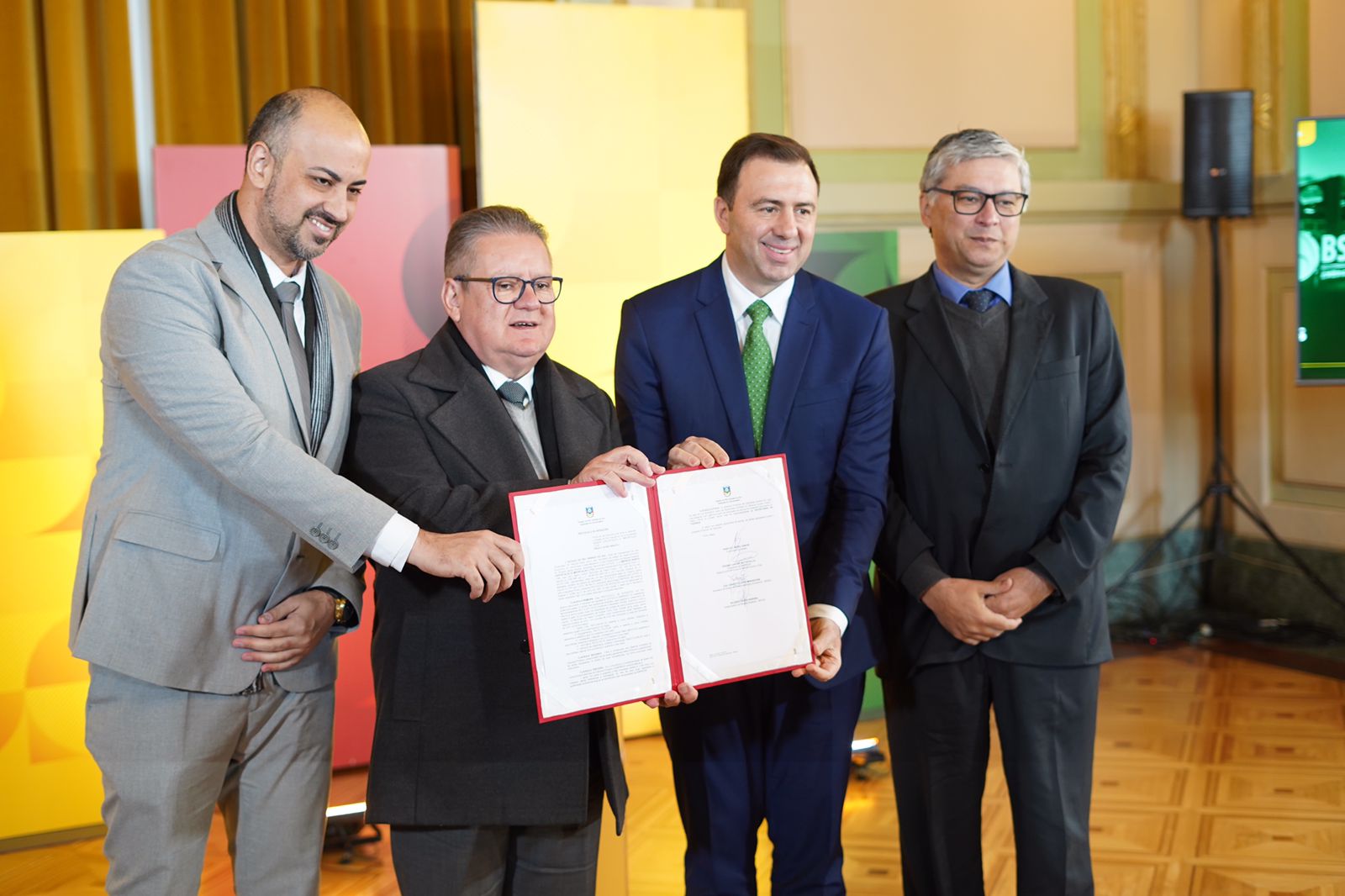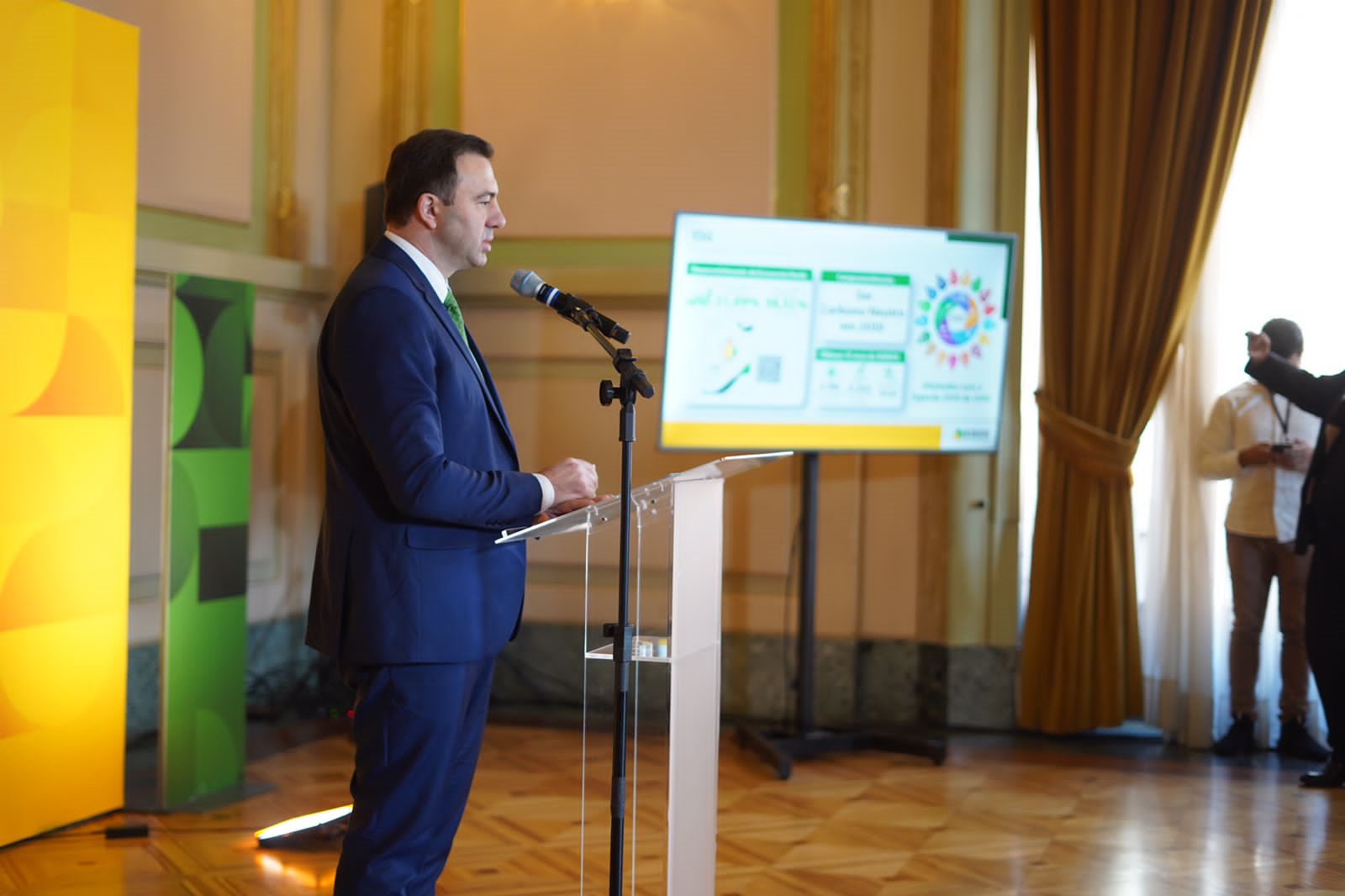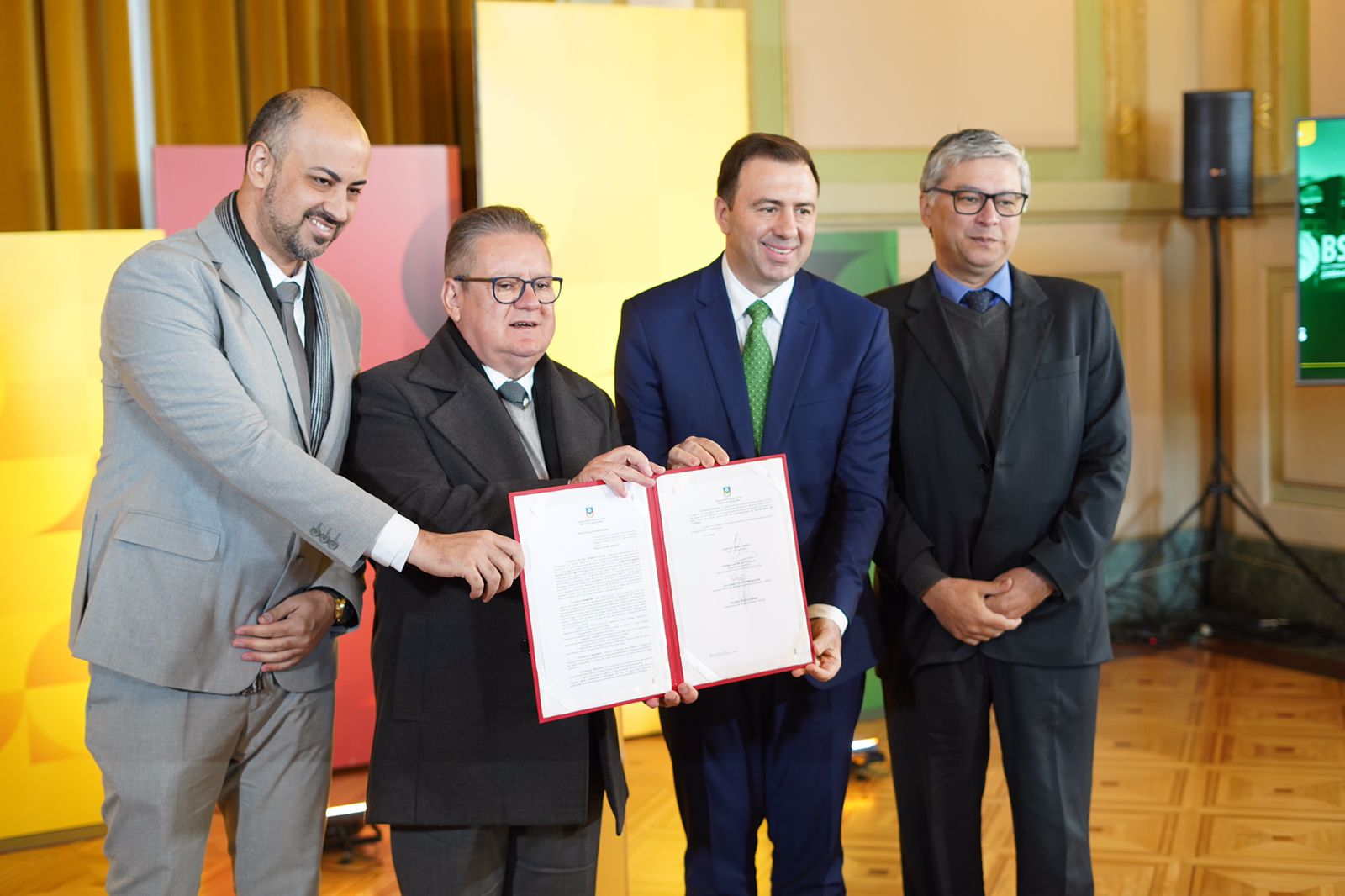Notícias
VoltarBSBIOS invests in the first large-scale ethanol plant in Rio Grande do Sul
 Located in Passo Fundo (RS), the new unit, when fully installed, will process 1,500 tons of cereals per day to produce 220 million liters of ethanol (anhydrous or hydrated) and 155.000 tons per year of bran for the animal protein chain
Located in Passo Fundo (RS), the new unit, when fully installed, will process 1,500 tons of cereals per day to produce 220 million liters of ethanol (anhydrous or hydrated) and 155.000 tons per year of bran for the animal protein chain
BSBIOS reinforces its strategy of being one of the most important companies in biofuels by signing a Protocol of Intentions with the State of Rio Grande do Sul on Monday (June 20), in Porto Alegre. The document establishes articulated actions to enable the investment of R$ 316 million in the first phase of the implementation of a plant that will produce ethanol and bran from the processing of cereals (corn, wheat, triticale, rice, sorghum, among others).
"Rio Grande do Sul is an ethanol importer state and we, who are in the production chain, with this investment, will expand our biofuel production capacity here in the South Region, joining the Pro-Ethanol program", says Erasmo Carlos Battistella, president of BSBIOS.Currently the state imports 99% of its ethanol demand and the new plant, starting in 2027, will supply 23% of this need.
"The initiative will represent an increase in the supply of bran for the animal protein production chains, besides promoting investment in genetic technology development for the production of wheat specific for ethanol production and being a viable income opportunity for farmers with the cultivation of winter cereals," said Battistella.
"The renewable energy issue dialogues, without a doubt, with what we think in terms of what we want to have here in Rio Grande do Sul. We have a huge potential for ethanol production - the internal demand reaches 1 billion liters per year," said Ranolfo Vieira Júnior, State Governor, during the protocol signing event. "The government has been consolidating its commitment to the expansion of production. Initiatives such as today's, signed through this Protocol of Intentions with BSBIOS, are essential for this space to be used. With this state policy (Pro-Ethanol), built to go beyond governments, we seek self-sufficiency in ethanol production. This will foster an entire chain of producers, storage and distribution, generating jobs, revenue and development," he added in his speech.
The investments will be made in the second quarter of 2023, with operations expected to start in the second half of 2024. Besides the State Governor, the State Secretary of Economic Development, Joel Maraschin, the Under Secretary of State Revenue, Ricardo Neves Pereira, and the Chairman of the Board of BSBIOS, Francisco Turra, were also present at the event.
The Protocol establishes tax treatments in relation to ICMS for acquisitions from suppliers located in Rio Grande do Sul of industrial machinery and equipment and imports from abroad of industrial machinery and equipment. From now on, the company is moving forward to finalize all the necessary studies, engineering projects and the financing structure for the plant to start operating in the 2024 wheat harvest. In the next few days, a Protocol of Intentions will also be signed with Passo Fundo City Hall.
Pro-Ethanol
The BSBIOS initiative will be in the context of the State Policy of Stimulus to Ethanol Production (PL 292/20), which created the State Program for the Development of the Ethanol Production Chain (Pro-Ethanol). Its goal is to reduce Rio Grande do Sul's dependence on ethanol from other regions of the country. This will allow the organization to join the Rio Grande do Sul State Enterprise Operation Fund (FUNDOPEM) and the Rio Grande do Sul Industrial Development Harmonization Program (INTEGRAR).
Foreseen to operate in two phases, with the processing of 750 tons/day of cereals in 2024 and 1,500 tons/day in 2027, the project totals an investment of R$ 556 million in the period. The project should represent an increase of R$ 1.3 billion in annual turnover for the ECB Group, and will generate 143 new direct jobs and approximately 1,000 indirect jobs.
The plant will be flexible for the production of anhydrous ethanol (which can be added to gasoline) or hydrous (direct consumption) and will have a capacity of 111 million liters in its first phase, and will reach 220 million liters, doubling its capacity when fully installed. It will be located in the city of Passo Fundo, on BR 285, Km 316.
The unit will have self-production of electricity with biomass cogeneration and the supply of surplus energy will be made available to the municipality's distribution network. There will be no discharge of liquid effluents, which will be used for steam production in the production process.
Animal Protein Chain
BSBIOS will also offer the market the bran from the production of ethanol. Known as DDGS (Distiller'sDriedGrainswithSolubles), obtained immediately after the fermentative process of ethanol production, it is an important co-product of the fermentation process of grains, with great potential for use in the production of animal feed for the food production chain. 155.000 tons per year of bran will be produced for the animal protein chain in the second phase of the project.
Raw material
As the region has low conditions for using sugarcane as raw material, the new plant will process 260 thousand tons per year of cereals for the production of ethanol and bran.Rio Grande do Sul and Paraná share the leadership of grain production and the ethanol industry will expand winter crops.
"Within the context of Pro-Ethanol, this initiative will make better use of the state's productive areas, increase liquidity for winter crops, strengthening our economy," analyzed Giovani Faé, Head of Technology Transfer at Embrapa-Trigo (Brazilian Agricultural Research Corporation), with whom BSBIOS has created a partnership for the production of new materials. "Today we already have in our portfolio wheat and triticale (winter cereal used in animal feed) with extremely interesting concentrations of starch for ethanol production. In addition, we will develop development actions with the actors in the chain to stimulate the production of winter cereal as a viable alternative income," added Faé.
Genetic improvement
Another BSBIOS partnership will be with Biotrigo Genética, a leading company in genetic improvement of wheat in Latin America. The company is working on the genetic development of two wheat cultivars exclusively for ethanol production. The varieties, because they have high levels of starch, are ideal for the production of biofuel.
For the director and breeder of Biotrigo Genética, André Cunha Rosa, the partnership signed with BSBIOS is an important milestone for the company, for wheat culture and for Brazilian agribusiness. "Biotrigo gains more wheat market, BSBIOS gains wheat suitable to its needs and the producer gains excellent cultivars in the field and another opportunity to sell their production," he says.
André explains that the wheat cultivars licensed to BSBIOS are the result of researches developed since 2015 within Biotrigo's genetic improvement program, having as assumptions important characteristics for the production of ethanol, as well as for the production of DDG (distillery dry grains), an important ally in animal feed.
"For ethanol production, it is essential that the cultivars stand out for high PH, good levels of starch, and high productivity. For the production of the co-product of ethanol, called DDG, we have also added to the genetics of the materials, a better genetic resistance to gibberellas in comparison to other cultivars and, especially, other winter cereals," explains Cunha Rosa. The cultivars will enter the market as of 2024 and this year, several technical showcases will demonstrate wheat cultivars specific for ethanol production.












